- Clone
- 1C10 (See other available formats)
- Regulatory Status
- RUO
- Other Names
- Bp50, TNFRSF5
- Isotype
- Rat IgG2a, κ
- Ave. Rating
- Submit a Review
- Product Citations
- 14 publications
CD40 is a 48 kD type I transmembrane glycoprotein, also known as Bp50. It is a member of the tumor necrosis factor receptor (TNFR) superfamily and is expressed on B cells, basal epithelial cells, macrophages, follicular dendritic cells, endothelial cells, and a subset of CD34+ hematopoietic progenitors. CD40 regulates B cell development/maturation, Ig isotype switching and, in combination with other signals such as IL-4, protects B cells from surface Ig-induced apoptosis and promotes proliferation. Interaction of CD40 with its ligand CD154 (gp39), which is expressed on activated T cells, is important in costimulation and immune regulation.
Product DetailsProduct Details
- Verified Reactivity
- Mouse
- Antibody Type
- Monoclonal
- Host Species
- Rat
- Formulation
- Phosphate-buffered solution, pH 7.2, containing 0.09% sodium azide.
- Preparation
- The antibody was purified by affinity chromatography.
- Concentration
- 0.5 mg/ml
- Storage & Handling
- The antibody solution should be stored undiluted between 2°C and 8°C.
- Application
-
FC - Quality tested
Costim, Block, IP - Reported in the literature, not verified in house - Recommended Usage
-
Each lot of this antibody is quality control tested by immunofluorescent staining with flow cytometric analysis. For flow cytometric staining, the suggested use of this reagent is ≤ 1.0 µg per million cells in 100 µl volume. It is recommended that the reagent be titrated for optimal performance for each application.
- Application Notes
-
The 1C10 antibody has been reported to stimulate B cell proliferation and block CD40-CD40L interactions. Additional reported applications (for the relevant formats) include: immunoprecipitation, blocking5,6 of CD40 ligand binding, and in vitro stimulation of B cell proliferation1-3. The LEAF™ purified antibody (Endotoxin <0.1 EU/µg, Azide-Free, 0.2 µm filtered) is recommended for functional assays (Cat. No. 102810). For highly sensitive assays, we recommend Ultra-LEAF™ purified antibody (Cat. No. 102812) with a lower endotoxin limit than standard LEAF™ purified antibodies (Endotoxin <0.01 EU/µg).
-
Application References
(PubMed link indicates BioLegend citation) -
- Ferlin WG, et al. 1998. Eur. J. Immunol. 28:525. (FC, Costim)
- Ferlin WG, et al. 1996. Eur. J. Immunol. 26:2911. (Costim)
- Heath A, et al. 1994. Eur. J. Immunol. 24:1828. (Costim)
- Ashman RF, et al. 2005. Int. Immunol. 17:411.
- Pelßez B, et al. 2001. J. Immunol. 166:6608. (Block)
- Zhang P, et al. 2007. J. Immunol. 178:474. (Block)
- Lawson BR, et al. 2007. J. Immunol. 178:5366.
- Ponomarev ED, et al. 2007. J.Immunol.178:39. PubMed
- Product Citations
-
- RRID
-
AB_312935 (BioLegend Cat. No. 102802)
Antigen Details
- Structure
- TNFR superfamily, 48 kD
- Distribution
-
B cells, basal epithelial cells, macrophages, follicular dendritic cells, endothelial cells, CD34+ hematopoietic progenitors
- Function
- Stimulates B cell growth, differentiation and isotype switching, stimulates macrophage and dendritic cell cytokine production
- Ligand/Receptor
- CD40L (CD154)
- Cell Type
- B cells, Dendritic cells, Endothelial cells, Epithelial cells, Hematopoietic stem and progenitors, Macrophages
- Biology Area
- Cell Biology, Immunology, Neuroscience, Neuroscience Cell Markers, Costimulatory Molecules
- Molecular Family
- CD Molecules
- Antigen References
-
1. Barclay A, et al. 1997. The Leukocyte Antigen FactsBook Academic Press.
2. Bancherou J, et al. 1994. Annu. Rev. Immunol. 12:881.
3. Clark EA, et al. 1996. P. Natl. Acad. Sci. USA 83:4494. - Gene ID
- 21939 View all products for this Gene ID
- UniProt
- View information about CD40 on UniProt.org
Related FAQs
Other Formats
View All CD40 Reagents Request Custom Conjugation| Description | Clone | Applications |
|---|---|---|
| Purified anti-mouse CD40 | 1C10 | FC,Costim,Block,IP |
| Ultra-LEAF™ Purified anti-mouse CD40 | 1C10 | FC,Costim,Block,IP |
Customers Also Purchased
Compare Data Across All Formats
This data display is provided for general comparisons between formats.
Your actual data may vary due to variations in samples, target cells, instruments and their settings, staining conditions, and other factors.
If you need assistance with selecting the best format contact our expert technical support team.
-
Purified anti-mouse CD40
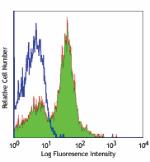
C57BL/6 mouse splenocytes stained with purified 1C10, follow... -
Ultra-LEAF™ Purified anti-mouse CD40
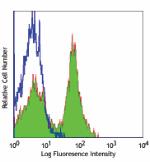
C57BL/6 mouse splenocytes stained with Ultra-LEAF™ purified ...




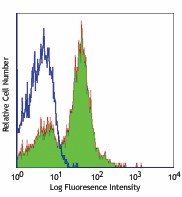



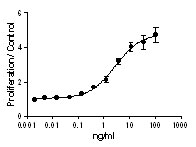

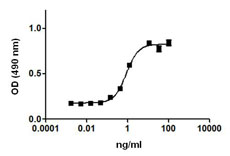







Follow Us